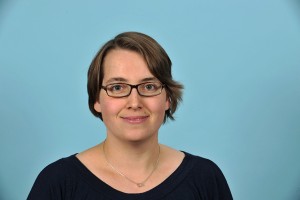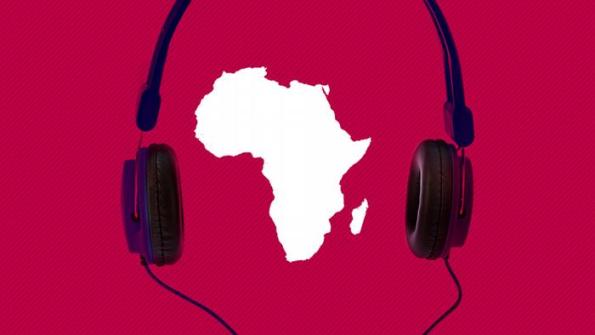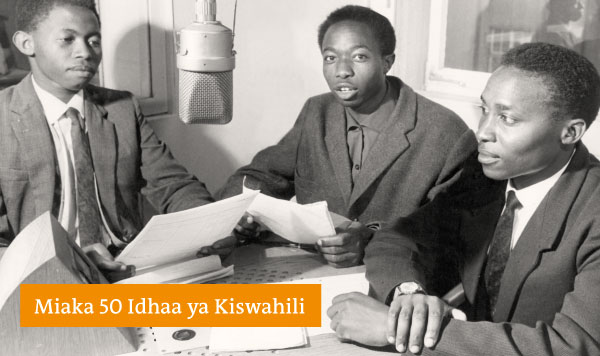Search Results for Tag: radio
Market roundup: February 2016
Africa
Several radio partners in Sub-Saharan Africa are expanding cooperation with DW. In Nigeria, Radio Gombe is acquiring English and Hausa radio programs. The station covers the states of Yobe, Borno and Adamawa. In Congo, Radio Mwana is acquiring DW’s complete French programming lineup, with stations in Mbandaka and Gbadolite that reach more than 750,000 listeners. A new radio partner in Mbuji-Mayi, Radio Fraternité, will be broadcasting one hour of French programming daily to a potential 500,000 households. In Ghana, the Internet radio broadcaster Ghana Waves Radio now includes DW live streams in six languages. The streams are also included on the Ghana Waves app and on-demand. DW radio live streams and newsfeeds in a variety of languages are also available now across Africa on the Africa Live Radio and News App.
The Liberian state broadcaster LNTV is now broadcasting one hour of DW programming every day. LNTV is the only Liberian TV broadcaster with nationwide coverage. Included in the programming package is DW News, Euromaxx, Kick off!, and In Good Shape.
In Tanzania, DW is the first international news provider available on the video-on-demand platform SIMUtv. The app has already been downloaded 100,000 times.
Asia
DW has expanded cable network partnerships in India and Bangladesh, with several cable providers acquiring DW’s English channel. This increases DW’s technical range by 400,000 households in Bangladesh and by 250,000 households in the Indian states of Bihar and West Bengal.
The Bengali-language app Kokil now includes an RSS feed with content from DW Bengali. The app currently has 50,000 users.
DW’s English-language channel is now part of the line up on Star Cable Network, the largest cable network in the Afghan capital, Kabul.
South America
The Colombian news website Publimetro now features a DW content box with Spanish-language news articles from DW. Publimetro belongs to Metro International, a well-known publisher of free newspapers in cities around the world. The Publimetro news portal registers 3.2 million unique visitors every month.
Europe
DW has a new Smart TV partner in the United Kingdom. The OTT provider Vision247 is now broadcasting DW’s flagship English channel in its entirety on the free-to-air entertainment portal, Vision TV. The portal is available on the digital TV service Freeview on channel 244 and can be received by a potential 7.3 million households in Great Britain. Vision TV is also available for mobile devices and on web-TV.
It all started in Rwanda…
This year, DW Akademie is celebrating its 50th anniversary. It’s an institution that has grown immensely since that first training program for radio technicians in Rwanda. It has steadily expanded its work promoting press freedom, freedom of expression and media development. But the game has changed over the past five decades. Information can now reach every corner of the world, which is why media development has taken center stage in development policy. DW Akademiie is meeting these challenges with an innovative and interdisciplinary approach. They work on political frameworks in consultation with government authorities and NGOs, for example, and advise journalists and the media on developing new business models to assure their financial independence. Today, DW Akademie works in 50 countries around the world, with sustainably designed programs and clearly defined aims.
Reaching African youth with educational radio
Guest commentary
Maja Braun, Coordinating Editor, Programs for Africa
 Along with providing global audiences with quality news and information, we think international broadcasters should also be responsible for education, especially on social issues and topics that are a part of what Deutsche Welle stands for, such as democracy, civil rights and intercultural dialogue. And that is why we are always looking for new, innovative ways to make education work in different regions around the world – like, for example, in Africa.
Along with providing global audiences with quality news and information, we think international broadcasters should also be responsible for education, especially on social issues and topics that are a part of what Deutsche Welle stands for, such as democracy, civil rights and intercultural dialogue. And that is why we are always looking for new, innovative ways to make education work in different regions around the world – like, for example, in Africa.
Unlike other regions around the globe that have seen FM, shortwave and AM lose tremendous amounts of users in the last 15 years, radio has remained very important to people in Africa looking for information. It’s a big part of the media landscape and continues to draw listeners week in and week out. We have also seen a huge boom in mobile usage – the number of subscribers has increased by at least 20 percent in each of the last five years.
When we first developed Learning by Ear in 2008, we wanted to give young Africans – even those who cannot read or access the Internet – the opportunity to get information on important issues that would improve their lives immediately and in the future. It was important for listeners to learn, but we also wanted to keep them entertained. That is why we mainly use radio dramas to deliver the message of topics that are not taught in school. Learning by Ear now plays a big role in the lives of many young people in Africa, offering radio dramas and feature stories on a variety of topics, ranging from political and societal issues to economic, health and environmental issues.
By working with mobile partners in Africa in the last few years, we have also been able to reach out to a new demographic and, hopefully, increase the level of social education among their customers. The unique, audio-based content is split up into individual series and segments – which makes it great for mobile consumption.
After five years and 42 different series with ten episodes each covering everything from health and hygiene to globalization, entrepreneurs and African success stories, we felt it was time for a change. We wanted to improve on the already successful format by providing a narrative that would help these young listeners in their daily lives; a story which accompanies them throughout the year instead of changing the scene every ten weeks.
With Crossroads Generation, we have created a Learning by Ear series which follows four characters as they confront challenges and learn from their mistakes. Listeners can get to know the characters better and will be more invested in what happens to them on the show. The episodes will deal with many issues simultaneously and the storyline will build on itself throughout the season.
The new format will also inspire young listeners to reflect on what they’ve heard and form their own opinions. One episode for example confronts teenage pregnancy and the actress decides to have an abortion. This decision is presented in a non-judgmental manner that allows for listeners to decide where they stand for themselves. There will also be a discussion platform available on Facebook where the audience can voice their ideas and opinions.
Other improvements include an online video-blog that will accompany every second episode and also adds a visual flavor to the series for the first time. The audience gets a look behind the scenes and insight into how the characters feel. The video-blog will be included on the website and Facebook page. Their will also be a Learning by Ear theme song featured in each of the program’s six languages.
We are hoping that with this new series, we will be able to win over even more listeners and give them insights into how to help shape their own lives to be successful.
DW celebrates 50 years of quality journalism in Kiswahili
For half a century, DW has been broadcasting reliable news and information in Kiswahili to listeners in Eastern Africa and the Great Lakes region. DW celebrated this anniversary today with an event in Dar es Salaam, Tanzania, by bringing opinion leaders together for a discussion on “Knowledge and Awareness through Media”. Keynotes were held by the German Ambassador, Klaus-Peter Brandes and Andrea Schmidt, head of DW’s Kiswahili Service.
“The majority of our listeners live here in Tanzania so it was an obvious choice for our celebration,” said Andrea Schmidt. “For the last 50 years, DW has been committed to providing balanced news and reliable information, offering people in East Africa insights and detailed analysis on the issues that matter most.”
The panel discussion at the event was organized with the help of GIZ in Dar es Salaam and moderated by DW’s Mohammed Khelef. Participants included distinguished Tanzanian media professionals likeAssah Andrew Mwambene (Director of Tanzania Information Services / Maelezo), Mohamed Abdulrahman (DW), Jenerali Ulimwengu (journalist), Valerie Msoka (Director of TAMWA) and Maggid Mjengwa (social media expert).
DW’s Kiswahili Service broadcasts daily three hours to East Africa and the Great Lakes region. By working with partner stations throughout the region, DW is able to provide listeners via FM balanced coverage of what is going on in the world in general and in Africa in particular. To provide this international perspective, a team of journalists from five African countries works together with a network of correspondents. Kiswahili programming is one of the most popular that DW offers. DW has integrated award-winning educational content with Learning by Ear and a huge variety of features covering health, human rights, environment, women and development, youth and lifestyle and culture.
DW boosts airtime in Kenya
A new partnership with Standard Group Ltd. will make DW radio and television programming available to even more viewers and listeners in Kenya. The new agreement will make DW’s Swahili radio programming available on Radio Maisha and English television programming on KTN. Radio Maisha has been rebroadcasting DW’s Swahili programming since January 15, with one programming hour being aired five days a week from Monday to Friday. In addition, 10 minutes of news is being broadcast on Saturday and Sunday. In addition, DW’s English television programming will also be broadcast on KTN – a privately run television station which broadcasts throughout Kenya in English. A promotional campaign will accompany the partnership featuring bill-boards, radio and newspaper ads to introduce DW programming to the Kenyan audience.












Feedback